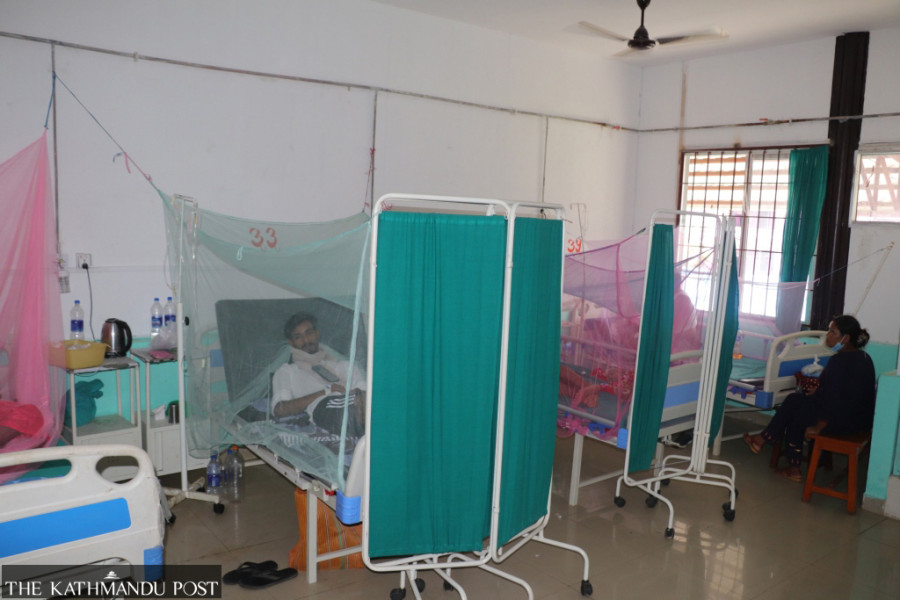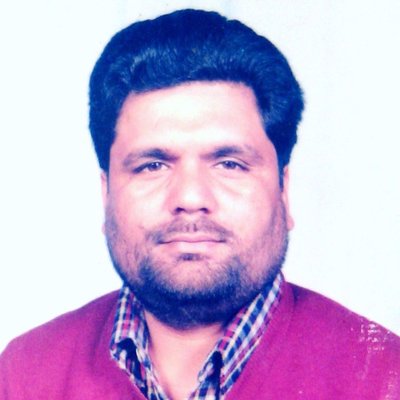Health
Dengue taking its toll in Makawanpur and Dhading
Within just one and half months this fiscal year, Makawanpur has reported 558 cases, and Dhading 126.
Pratap Bista & Sarita Shrestha
Dengue, a mosquito-borne infectious disease, is taking its toll almost across the nation lately. Makawanpur and Dhading districts of Bagmati Province are no exception.
Dengue cases are alarmingly high in Makawanpur with nearly 600 cases reported in the district over the past one and half months.
“The sharp rise of dengue cases in Hetauda, the district headquarters of Makawanpur, is quite worrisome. Hetauda Sub-metropolis, in coordination with the district health office, is launching a campaign to destroy mosquitoes from Saturday,” said Krishna Yadav, the public health inspector at the sub-metropolis’ public health unit.
The local unit on Friday organised an orientation programme for the health workers who are to be mobilised in the campaign.
Makawanpur witnesses dengue cases every year, especially in the monsoon and post-monsoon seasons. However, the number of dengue patients is far more this year than in the past. As per the data available at the district health office, a total of 195 people were infected with dengue in the last fiscal year of 2021-22. But this fiscal year, within just one and half months, as many 558 dengue cases have already been reported in the district.
According to Laxman Ghimire, information officer at the district health office, 226 people have been infected with dengue in Hetauda-4 alone in the current fiscal year. He said that some dengue patients who were recently cured were again infected with the disease.
Hetauda Sub-metropolis decided to launch a search and destroy drive along with a mass awareness campaign. Mina Lama, mayor of Hetauda Sub-metropolis, said that the campaign to destroy mosquitoes and aware people would be soon launched across the sub-metropolitan city.
Dengue is a mosquito-borne disease transmitted by female Aedes aegypti and Aedes albopictus mosquitoes. The same vector, according to the World Health Organisation, also transmits chikungunya, yellow fever and Zika viruses.
Although the post-monsoon period is considered a high transmission season for the dengue virus, Nepal has witnessed outbreaks of the fatal disease in the pre-monsoon, monsoon and post-monsoon seasons in 72 districts as of now.
Dhading, a hill district, is also hugely affected by dengue this year. A 56-year-old patient died of dengue fever in the district a month ago. Like in Makawanpur, dengue cases surpass last year’s figures in Dhading. According to district health office, a total of 48 people were infected with dengue last year but the number of cases already reached 126 within the first one and half months of the current fiscal year.
“Dengue cases are spreading like an epidemic this year,” said Bikaram BK, the information officer at Dhading District Hospital. “Most of the fever patients who have visited the hospital for treatment have tested positive for the dengue virus.” He underscored the need to control the disease immediately before it turns into an epidemic.
The district hospital has urged people to take preventive measures against dengue, BK said.
“We have enough testing kits at the hospital. The hospital is able to conduct the laboratory test and provide treatment,” said Dr Madhukar Dahal, the medical superintendent at the hospital. He urged people to immediately visit the health institutions if they had symptoms that were similar to dengue.
According to doctors, mild to high fever, severe muscle pain, rashes, severe headache, and pain in eyes are some of the symptoms of dengue.
Mosquitoes that cause dengue breed in clean water and infect people in daylight.
The World Health Organisation says that there is no specific treatment for severe dengue, but early detection and access to proper medical care can lower the fatality rate.
According to officials at the Ministry of Health and Population, dengue cases have been reported in 72 districts throughout the country with around 3,000 cases.




 9.7°C Kathmandu
9.7°C Kathmandu
















